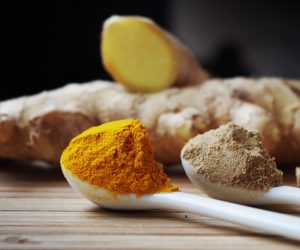
Can Melatonin Help Prevent Severe COVID-19?
Angela Betsaida B. Laguipo, BSN via News-Medical Net – The coronavirus disease (COVID-19) pandemic has rapidly spread worldwide, infecting over 64.50 million people across 191 territories. Caused by the severe acute respiratory syndrome coronavirus 2 (SARS-CoV-2), the infection has already claimed more than 1.49 million lives.
The coronavirus pandemic is by far the worst global health crisis in the past century. The magnitude of the disease’s spread stemmed from the number of people who traveled early in 2020 when there were still only a few cases of COVID-19. Of all the victims of the virus, older adults and those with underlying health issues are the most vulnerable and are more likely to develop severe symptoms.
Currently, there is no approved drug that is safe and effective in mitigating severe or critical COVID-19. Many health experts have recommended repurposing old antivirals – like remdesivir and dexamethasone – to reduce the risk of developing severe illness. More recently, some have recommended melatonin as a potential therapeutic that can inhibit SARS-CoV-2 infection.
A team of researchers at the University of Toronto in Canada has found that melatonin can be an adjuvant to augment the efficacy of anti-SARS-CoV-2 vaccines. They believe that the drug is a potential “silver bullet” to combat the COVID-19 pandemic.
Melatonin and COVID-19
In the study, which was published in the journal Diseases, the scientists discussed the potential benefit of melatonin for COVID-19 patients. They discussed evidence implying that melatonin prevents SARS-CoV-2 infection, has anti-inflammatory, immunoregulatory, and antioxidant properties, counteracts chronodisruption, and combats many comorbidities, including metabolic syndrome, diabetes, and cardiovascular diseases.
The SARS-CoV-2 pathogen enters the cells via the angiotensin-converting enzyme 2 (ACE2) receptor in the lungs and other organs in the body. The virus’s spike glycoprotein on its surface docks onto the ACE2 dimer to infiltrate the host cell and commence viral replication.
Previous studies suggest that melatonin may be an effective antiviral agent amid the coronavirus pandemic. In one study, the researchers found that a drug combination of melatonin and mercaptopurine effectively hits the HCoV-host subnetwork and was recommended as a possible drug combination for SARS-CoV-2 infection.
Another possible way melatonin may regulate viral infection is related to its effective binding and inhibition of calmodulin, which regulates the surface expression and retention of ACE2 in the plasma membrane.
Anti-Inflammatory and Antioxidant Properties
Apart from preventing infection with SARS-CoV-2, melatonin has also been noted for its anti-inflammatory, immunoregulatory, and antioxidant properties.
Melatonin applies anti-inflammatory effects through sirtuin-1, which inhibits the polarization of macrophages towards the proinflammatory type. Further, the drug decreases the proinflammatory cytokines, which have been tied to severe COVID-19 disease.
The drug has antioxidant properties as it acts as a free radical searcher; it is metabolized to compounds with high antioxidant activity, and triggers the synthesis of antioxidant enzymes.
Chronobiotic and Cytoprotective Agent
Apart from reducing inflammation and cytokine levels, melatonin is also a chronobiotic and cytoprotective agent. A chronobiotic agent is a drug that affects the physiological regulation of the body clock, which can correct a desynchronized circadian rhythm. Regulating and maintaining a stable body clock is important to boost energy levels and the immune system.
Melatonin is also a cytoprotective agent, which can help combat the common comorbidities that can heighten the risk of severe COVID-19. These include diabetes, metabolic syndrome and ischemic cardiovascular disease.
Lastly, melatonin also provides neuroprotection for COVID-19 patients. Some of the common symptoms of COVID-19 patients experience include loss of smell, paralysis, stroke, cranial nerve deficits, delirium, meningitis, seizures, and encephalopathy.
“Melatonin as a potential “silver bullet” in the COVID 19 pandemic, as exemplified in the brain. Melatonin has possible antiviral activity by interfering with SARS-CoV-2/angiotensin-converting enzyme 2 association,” the researchers explained.
In a nutshell, melatonin is a potent drug that can be used in treating COVID-19 patients. It is an antioxidant, anti-inflammatory, and immunomodulatory compound that impairs the complications of COVID-19.
Also, melatonin is an effective chronobiotic agent that reverses disruptions in the circadian rhythm. As a neuroprotective agent, it helps prevent the neurological effects of COVID-19, including cognitive decay and brain fog.
Older people have lower levels of circulating melatonin in the body, explaining why some may be more likely to suffer from severe symptoms.
Viruses can induce an increase in inflammatory cytokines, and since older adults have low levels of melatonin, they will have impaired immunity.
“Therefore, the use of the very safe drug melatonin in adequate doses can prevent the development of severe disease symptoms in coronavirus patients, reduce the severity of their symptoms, and reduce the immuno-pathology of coronavirus infection on patients’ health after the active phase of the infection is over,” the researchers explained.
Further, the team noted that melatonin could be used as an adjuvant for future vaccines since it helps prevents reinfection.
To read the original article click here.






